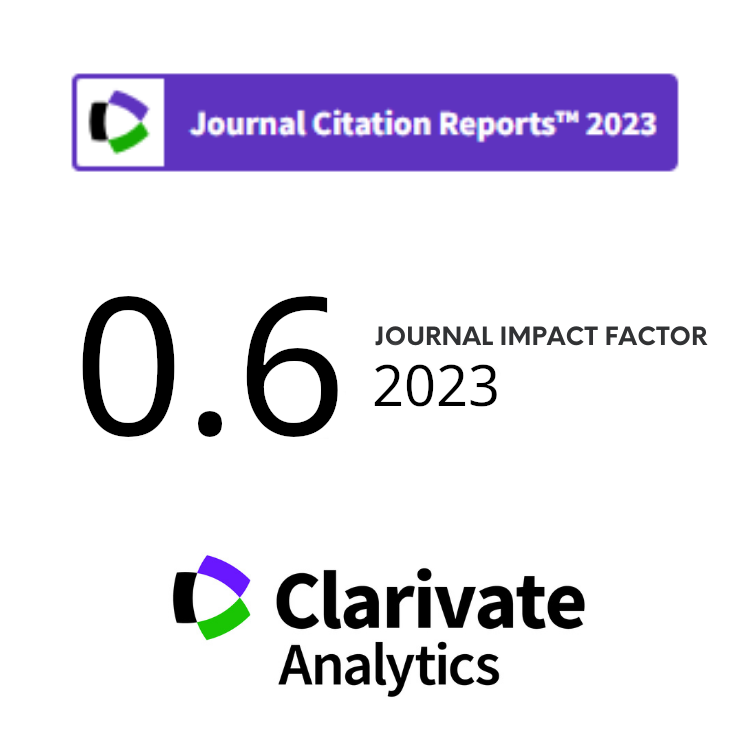The use of Micronucleus Assay on Swiss-Webster Mice (Mus Musculus) Bone Marrow for the Mutagenicity Test of γ-Irradiation
Abstract
Ionizing radiation is a potentially chromosomal damaging agent. The induction of chromosomal damage as well as the incidence of cell cycle disturbances may depend on the dose of irradiation. One of the indication of chromosomal damage is the formation of micronucleus (MN) during the anaphase of mitosis. This study deals with the MN assay on femur bone marrow polychromatic erythrocyte (PCE) cells of Swiss-Webster mice, for the mutagenicity test of g-irradiation. The study was conducted on five groups of mice (each group consist of five mice) that were irradiated at the doses of 0; 0,2; 0,4; 0,6 and 0,8 Gy respectively. One day after irradiation, the mice were killed by cervical dislocation. Furthermore the femur bone marrow was taken, the cells were then prepared by smear technique onto slides followed by Giemsa staining. The MN in PCE cells or MNPCE were examined microscopically by the magnification of 1000 and counted for every 1000 cells in each mice. The results showed that the MNPCE frequencies on the treatment groups were significantly higher than that of the control (P< 0,05). Further evaluation indicated that the MNPCE frequencies increased with the increase of irradiation dose.
Keywords
micronucleus, bone marrow, polychromatic erythrocyte, γ-irradiation, Swiss-Webster mice
Full Text:
PDFDOI: https://doi.org/10.17146/aij.2005.365
Copyright (c) 2016 Atom Indonesia

This work is licensed under a Creative Commons Attribution-NonCommercial-ShareAlike 4.0 International License.











